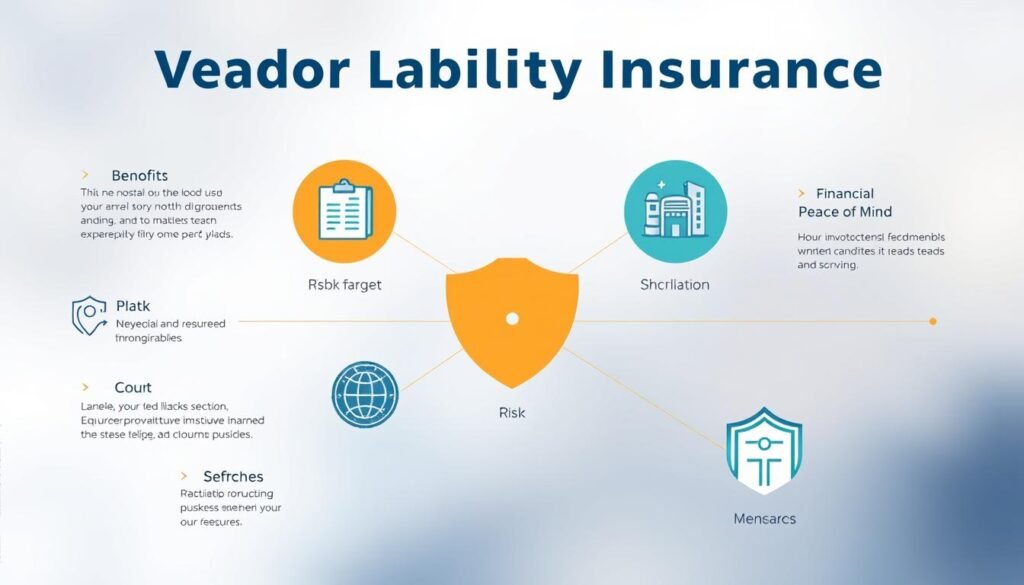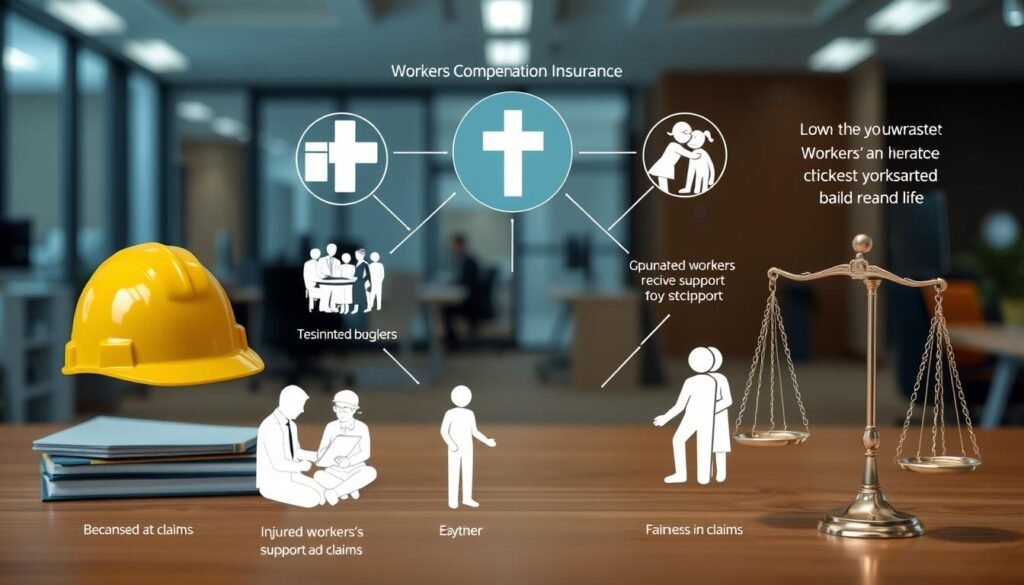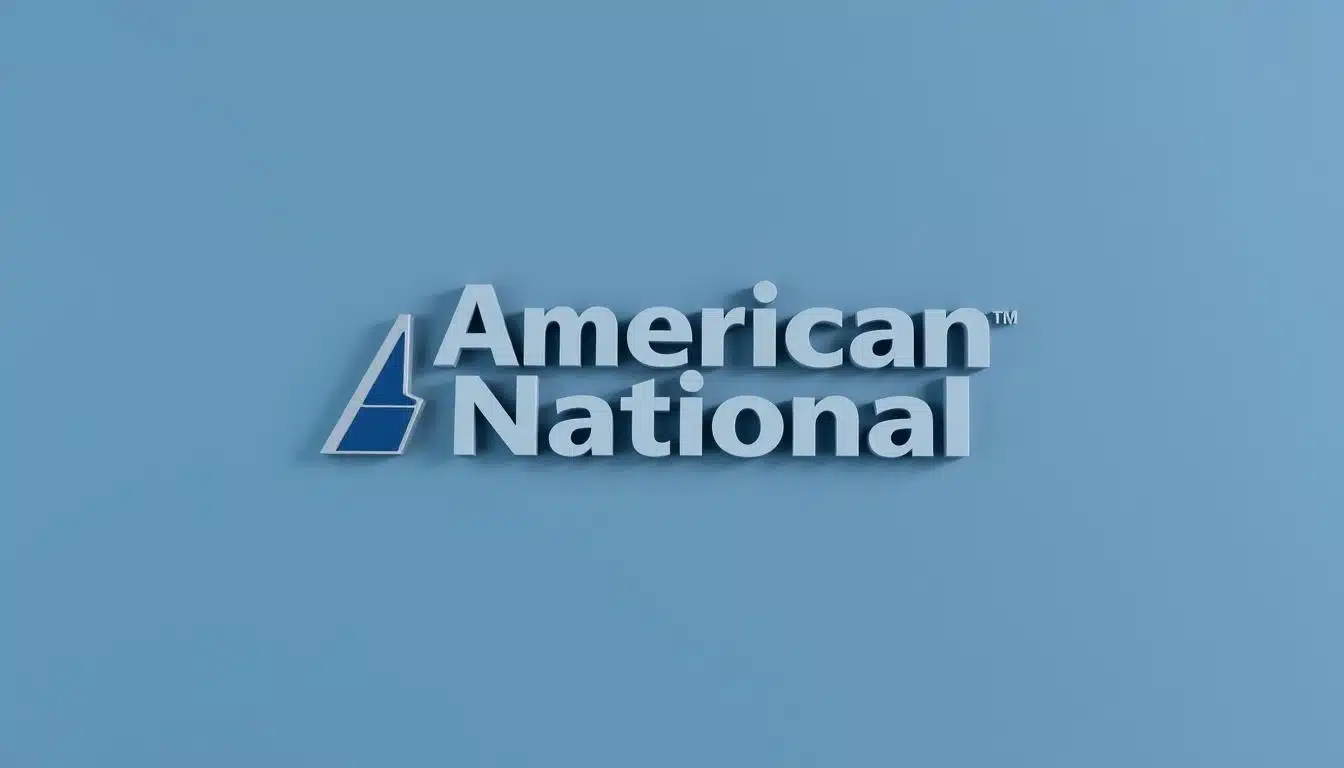In today’s fast-paced world, vendor liability insurance is key. Businesses face risks at places like farmers’ markets and trade shows. This insurance protects vendors from injury and property damage claims.
It also helps avoid legal troubles and boosts your reputation. With 52% of businesses facing claims in five years, costs can hit over $100,000. So, getting this insurance is vital for your business’s future.
Table of Contents
ToggleKey Points
- Vendor liability insurance safeguards businesses against legal claims.
- Investing in it boosts your credibility in the market.
- More than half of businesses deal with vendor liability claims.
- Good coverage reduces risks from vendor operations.
- Claims can cost over $100,000 on average.
Overview of Vendor Liability Insurance
Vendor liability insurance is key for businesses at events. It protects against lawsuits for injuries, damage, or product issues. This policy keeps businesses safe and meets event insurance needs.
Definition and Importance of Vendor Liability Insurance
Vendor liability insurance covers many risks at events like trade shows. It’s vital for defending against injury, damage, and contract claims. It also pays for legal defense, which is very important today.
Types of Coverage Included in Vendor Liability Insurance
There are many insurance types for vendors to keep them fully protected. Here are some of the most important ones:
- General liability insurance: It protects against injury and damage claims, starting at $299 a year.
- Product liability insurance: It covers issues with products sold, often added to general liability.
- Liquor liability insurance: Needed for vendors selling alcohol, like at sports arenas.
- Workers’ compensation insurance: Required for vendors with many employees in most states.
- Professional liability coverage: Optional but suggested for vendors at risk of negligence claims.
- Commercial auto insurance: Important for vendors using cars for deliveries.
- Cyber liability insurance: Needed for vendors selling online or collecting customer data.
There are also different policy lengths, like for a single day or longer. This meets various vendor needs without extra costs for additional insureds or certificates.
Why Every Business Needs Vendor Liability Insurance
Businesses that work with vendors face many risks. These risks can hurt their operations a lot. Vendor liability insurance is a key safety measure. It protects against unexpected problems and helps avoid big financial losses.
This insurance also builds trust with customers and partners. It shows that a business is responsible and cares about safety.
Protection Against Customer Injuries
Vendor liability insurance is very important for protecting against customer injuries. Vendors can face lawsuits if someone gets hurt on their property. This can lead to very high legal costs.
Some vendors have had to pay almost $700,000 for unexpected accidents. A good insurance policy helps keep these costs down. It makes sure businesses don’t go broke because of someone getting hurt.
Safeguarding Your Assets from Property Damage Claims
Vendor liability insurance also protects against property damage claims. This includes damage to both customer and vendor property. If something gets damaged during business activities, the right insurance can save a lot of money.
These policies usually cover many things like injuries, property damage, and legal fees. They help keep vendors safe from big financial problems.
Vendors need to know about the risks of their work. With the right insurance, businesses can handle these risks without worrying about money problems. This lets them grow and improve their services instead.
Vendor Liability Insurance for Various Types of Vendors
It’s important to know what each vendor needs for insurance. Food vendors face special risks. They need insurance to protect against food sickness and injuries.
Insurance for Food Vendors and Food Trucks
Food vendors have their own insurance needs. They need insurance for food handling issues. This insurance helps protect against lawsuits for injuries or damage.
It covers all employees and volunteers. Vendors can choose up to $1,000,000 per claim. This helps keep their business safe in the U.S. and its territories.
Insurance Requirements for Farmers Market Vendors
Farmers market vendors need to follow local rules. They must show they have enough liability insurance. They need to give a Certificate of Insurance (COI) to prove it.
They need at least $1,000,000 for general liability insurance. Insurance companies must have a good rating. Vendors should give their certificates early to avoid problems.
Key Coverage Under Vendor Liability Insurance
Vendor liability insurance has several key coverage. These are important for protecting your business. The main coverage are general liability, product liability, and professional liability. Each one plays a unique role in your insurance plan.
General Liability Coverage Explained
General liability coverage is a basic part of vendor insurance. It helps protect against claims of injury or damage. For example, if someone gets hurt because of a contractor’s mistake, your insurance might cover it. It’s important to make sure you have enough coverage.
Product Liability Insurance as Part of Coverage
Product liability insurance is key for vendors who sell goods. It covers claims of injury or damage from products you sell. It’s important to know what your insurance covers and what it doesn’t.
Importance of Professional Liability Coverage
Professional liability insurance is optional but important. It protects against claims of negligence in services. It’s vital for businesses that offer services and might face claims of professional mistakes. Knowing your insurance well helps manage risks for your business.
| Coverage Type | Description | Key Focus |
|---|---|---|
| General Liability Coverage | Protects against bodily injury and property damage claims. | Essential for all vendors. |
| Product Liability Insurance | Covers claims related to product issues leading to injury or damage. | Critical for vendors selling physical products. |
| Professional Liability Insurance | Offers protection against claims of negligence in services rendered. | Important for service-based vendors. |
Vendor Insurance Requirements for Events
Vendors at events must follow specific vendor insurance requirements. This is to ensure they are protected and meet the event’s rules. It’s all about having event vendor insurance to avoid big problems.
Understanding Event Vendor Insurance
Event vendor insurance helps vendors avoid legal issues. Venues often ask for a Certificate of Insurance. Our insurance meets about 99.5% of venue needs; if not, we give a full refund.
This shows how key insurance for vendors is. It lets vendors work without worry about unexpected costs.
What Certificates of Insurance Are Required
Vendors need a Certificate of Insurance for most events. It shows they have general liability coverage. This is for claims against them by others.
Insurance costs are low, starting at $24.25 a month or $279 a year for yearly plans. For one-day events, it starts at $49. But, it doesn’t cover personal property or injuries to the vendor’s workers
Meeting vendor insurance requirements boosts a vendor’s reputation and work flow. With the right insurance, vendors can set up faster and worry less.
| Insurance Type | Coverage Duration | Typical Cost |
|---|---|---|
| Annual Vendor Insurance | Year-round | Starting at $279 per year |
| Short-term Vendor Insurance | 1 to 90 days | Starting at $49 per event |
| One-day Vendor Insurance | Single event | Starting at $49 for the day |
Getting ahead with certificate of insurance for vendors helps avoid issues. It makes events run smoothly.
The Cost of Vendor Liability Insurance

Several factors affect the cost of vendor liability insurance. These include the business type, location, and the average cost. Each of these elements can change the price a lot.
Factors That Impact Insurance Pricing
The type of goods or services sold impacts pricing. For example, food vendors pay differently than those selling crafts. The industry’s risks and the vendor’s claims history also play a role.
Premiums can start at $25.92 monthly or $299 a year. This is true for businesses like food vendors at events or markets.
Average Cost Ranges for Different Vendor Types
Insurance costs vary from $25.92 monthly to over $299 yearly. Vendors can choose from short-term to one-year plans. This gives them flexibility based on their needs.
Industries like food service or public events face higher costs. This is because they have more risks. Knowing this helps businesses plan their budgets better. They can ensure they have the right coverage without overspending.
Understanding Additional Insureds in Vendor Insurance Policies
The idea of additional insureds in vendor insurance is key for both businesses and vendors. It lets vendors add third parties, like event planners and venue owners, to their liability insurance coverage. This shows professionalism and builds trust among everyone involved. It’s important for vendors to know how this affects their risk management.
What It Means to Be an Additional Insured
Being an additional insured means a vendor’s insurance also protects third parties. This helps against claims from the vendor’s work. The cost for this is low, making it a good deal for many businesses. It’s important to agree on liability limits to avoid future problems, like who is responsible.
Why Additional Insureds Are Important for Physical Venues
For places where people gather, like venues, it’s key to be listed as an additional insured. Landlords often ask for this to protect their interests. Big companies also want this to do business with vendors. This way, venues are safe from claims from vendor actions, adding a much-needed layer of security.
| Coverage Aspect | Details |
|---|---|
| Cost to Add Additional Insured | Typically low compared to regular premium costs |
| Involvement of Parties | Vendors must share the limits of the policy with additional insureds |
| Common Requirements | Landlords and major retailers often require additional insureds |
| Benefits | Enhanced trust and protection against vicarious liability |
| Scope of Coverage | Dependent on endorsement language, which may be customizable |
It’s vital to grasp the details of vendor insurance policies and the role of additional insureds. This knowledge helps vendors and venues handle their duties and risks well.
The Process of Obtaining Vendor Liability Insurance

Getting a vendor insurance plan takes a few steps. First, find the right insurance providers. Vendors start by looking for good insurers. They might ask for tips or search online.
Steps to Find the Right Insurance Provider
- Start with a list of known insurance providers for vendors.
- Get quotes from different companies to compare prices and options.
- Look at customer reviews to see how good the service is.
- Make sure the provider knows about vendor insurance in your field.
- Ask other vendors for advice on finding insurance.
How to Evaluate Different Vendor Insurance Plans
When looking at insurance, pay close attention to details. Check what each policy covers and what it doesn’t. Key things to think about include:
| Policy Feature | Details |
|---|---|
| Coverage Types | General Liability, Product Liability, Professional Liability, and more. |
| Coverage Limits | Minimum $1,000,000 per occurrence for General Liability; Aggregate limit of $2,000,000. |
| Exclusions | Specific risks or incidents excluded from coverage must be explicitly clear. |
| Additional Insureds | Ability to add third parties as additional insureds on the policy. |
| Pricing | Evaluate how the cost aligns with your business budget without sacrificing coverage quality. |
Get all the info you need, like licenses and claims history. This way, you can choose the best insurance for your business.
After looking at options, talk to an agent who knows about vendor insurance. They can help you understand the plans better. This careful process makes sure you choose the right coverage for your business.
Common Misconceptions About Vendor Liability Insurance
Many businesses don’t see the value in vendor insurance. They think only big events need it. But, even small vendors at local markets face big risks. It’s key to know the truth about vendor insurance.
Dispelling Myths About Coverage Needs
Some think event hosts pay for accidents. But, that’s not right. Liability insurance covers injuries to guests from vendors. It also protects against damage to venues from vendors.
Small business owners often think a BOP covers everything. But, they usually need more. General liability insurance doesn’t cover all risks, like cyber attacks.
Clarifying the Scope of Vendor Protection Coverage
Vendors’ employees are covered by liability insurance. Requiring vendors to have insurance protects the venue. If a vendor causes an accident without insurance, the venue might face claims.
Small business owners often don’t see the risks. They might not think about the costs of damage or injuries.
Conclusion
Getting vendor liability insurance is a smart move for any vendor. It offers protection against unexpected costs. This is key for your business and your clients’ trust.
Insurance options like the ACT Go policy cover short-term events. The ACT Pro policy is for more frequent needs. These options help keep your business safe and sound.
It’s also important to know the legal side of insurance. Laws require vendors to have certain insurance. This keeps your business safe from lawsuits and big losses.
Having the right insurance lets vendors work without worry. They can focus on doing great work, not on what could go wrong.
Choosing the right insurance is a big step towards success. By looking at different policies, vendors can build a strong safety net. This gives them peace of mind and helps them serve their community well.








